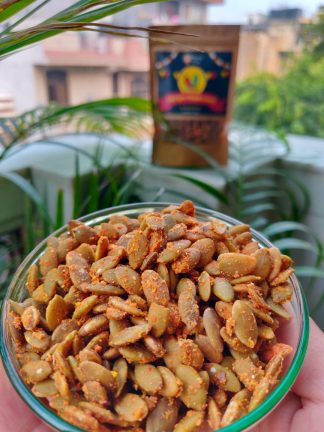
Introduction: 💊🚫 Metamucil is a popular fiber supplement known for its ability to promote regular bowel movements and support digestive health. While it can be beneficial for many individuals, taking Metamucil every day may come with potential side effects that need to be understood. In this blog post, we’ll explore the potential side effects of daily Metamucil use, helping you make informed decisions about its usage. Let’s dive in and uncover the facts! 💊🚫
Understanding Metamucil and Psyllium Husk:
Metamucil is a brand name for a fiber supplement that contains psyllium husk, a natural source of soluble fiber. Psyllium husk is derived from the seeds of the Plantago ovata plant. It is rich in soluble fiber, which is known for its water-absorbing properties and its ability to add bulk to the stool. Psyllium husk works by absorbing water in the digestive tract, forming a gel-like substance that helps soften the stool and promote regular bowel movements.
2024 Update in Metamucil and Psyllium Husk Usage
Understanding the Microbiota Impact
Recent studies have shed new light on the role of psyllium husk, the key ingredient in Metamucil, in influencing our intestinal microbiota. A groundbreaking study, as reported on PubMed, delved into the effects of psyllium on both constipated patients and healthy individuals. The findings revealed significant changes in the microbiota composition, which were more pronounced in constipated subjects. These changes correlated with alterations in gastrointestinal transit, short-chain fatty acids (SCFAs), and fecal water content. This research underscores the importance of psyllium in not just aiding digestion but also in modulating the gut microbiome, a crucial factor in overall gut health.
Genetic Breakthroughs in Psyllium Production
In a remarkable development, scientists from the University of Adelaide have successfully constructed the reference genome for Plantago ovata, the plant source of psyllium husk. This milestone, highlighted in ScienceDaily, marks a significant advancement in our understanding of the plant at a genetic level. The implications of this research are vast, as it paves the way for enhanced quality and increased yields of psyllium crops. With the demand for gluten-free and fiber-rich products on the rise, these genetic insights could lead to more sustainable and efficient production of psyllium, ensuring its availability and affordability for consumers.
Reaffirming Safety and Analyzing Costs
Consistent with our previous discussions, the Mayo Clinic has affirmed the safety of daily fiber supplement intake, including psyllium. This reassurance is vital for users who rely on Metamucil for regular digestive health support. Additionally, a cost analysis presented by Meghan Telpner highlights the economic aspects of Metamucil usage, offering valuable insights for consumers seeking cost-effective options for their fiber supplement needs.
Personal Experiences and User Testimonials
Echoing a report from Men’s Health, individual experiences with Metamucil have been largely positive, with users noting improvements in regularity and overall digestive comfort. These personal stories add a relatable dimension to the scientific and clinical information, emphasizing the practical benefits of daily psyllium husk supplementation.
What is Metamucil Used For?
Metamucil is a versatile fiber supplement that effectively addresses various digestive issues. Derived from psyllium husk, a soluble fiber found in the seeds of the Plantago ovata plant, it serves as a potent solution for constipation and promotes regular bowel movements. By absorbing water in the intestines, psyllium husk forms a gel-like substance that softens the stool, easing the passage.
In addition to relieving constipation, Metamucil plays a vital role in enhancing overall gut health. Its fiber content aids in reducing cholesterol levels, supporting heart health. Moreover, for individuals managing diabetes, Metamucil contributes to better blood sugar control.
Psyllium Husk Side Effects
Psyllium husk, the primary ingredient in Metamucil, is generally safe for consumption. However, some individuals may experience side effects, including bloating, gas, stomach discomfort, and dehydration, particularly when consuming excessive amounts of Metamucil.
To avoid side effects related to psyllium husk, it is essential to adhere to the recommended dosage and ensure adequate water intake while using the supplement. If any concerns arise about potential side effects, consulting a healthcare provider for personalized advice is prudent.
Potential Side Effects of Daily Metamucil & Psyllium Husk Use:
- Digestive Discomfort: Taking Metamucil without sufficient water intake or using excessive amounts may lead to digestive discomfort. The high fiber content of psyllium husk can cause bloating, gas, abdominal cramps, or an upset stomach, especially if not accompanied by an adequate amount of water. It is essential to follow the recommended dosage and drink enough water to prevent these issues.
- Dehydration: Metamucil absorbs water from the digestive tract to form a gel-like consistency, aiding in bowel movements. However, if you do not consume enough water along with the supplement, it can potentially contribute to dehydration. It is important to drink an adequate amount of water throughout the day to maintain proper hydration, especially when taking Metamucil.
- Interference with Medications: Metamucil, specifically psyllium husk, can interact with certain medications. The fiber in Metamucil can affect the absorption and effectiveness of medications, including those used to manage diabetes, cholesterol, blood pressure, and thyroid conditions. It is crucial to consult with your healthcare provider before starting Metamucil to ensure it does not interfere with your medication regimen.
- Allergic Reactions: Although rare, some individuals may be allergic to psyllium husk, the main ingredient in Metamucil. Allergic reactions may include itching, rash, hives, or difficulty breathing. If you experience any allergic symptoms after taking Metamucil, discontinue use and seek immediate medical attention.
- Potential for Obstruction: Individuals with a history of gastrointestinal conditions, such as narrowing of the esophagus, stomach, or intestines, should exercise caution when using Metamucil. The gel-like consistency of the supplement could potentially cause an obstruction in those with pre-existing structural abnormalities. If you have any underlying digestive issues, it is advisable to consult with a healthcare professional before using Metamucil.
- Interference with Nutrient Absorption: The soluble fiber in Metamucil, derived from psyllium husk, can bind to certain nutrients, such as iron, calcium, and some medications, potentially interfering with their absorption. If you take medications or supplements, it is advisable to take them at least two hours before or after consuming Metamucil to minimize any potential interactions.
Does Metamucil Cause Bloating?
Bloating is a potential side effect associated with Metamucil use, particularly when individuals start using the supplement. The presence of additional fiber in the digestive system can lead to bloating and gas as the gut adapts to the increased fiber intake.
To mitigate bloating, it is advisable to commence Metamucil with a small dosage and gradually increase it over several days. Staying well-hydrated by consuming at least 8 ounces of water with each serving of Metamucil can also alleviate bloating and improve digestion.
Can You Take Metamucil Every Day?
Absolutely, Metamucil can be incorporated into your daily routine as a dietary supplement. Consistent use of Metamucil can foster regular bowel movements and improve overall digestive health. It is crucial to follow the recommended dosage indicated on the product packaging or as advised by your healthcare provider.
Taking Metamucil regularly enhances its efficacy in managing constipation and supporting gut health. Should you have any medical conditions or concerns about daily usage, consulting your healthcare provider for guidance is advisable.
Should You Take Metamucil Every Day?
Taking Metamucil daily can be beneficial for those looking to maintain regular bowel movements and support digestive health. However, whether you should take it every day depends on your individual needs and goals. For some, daily use may be necessary to manage constipation effectively, while others may use it periodically as needed. Before incorporating Metamucil into your daily routine, consult your healthcare provider to ensure it aligns with your specific health conditions and preferences.
When Should You Take Metamucil?
The ideal time to take Metamucil depends on personal preference and lifestyle. Some people prefer taking it in the morning to kickstart their day with improved digestive health, while others find it more convenient to take it during or after a meal. The key is to take Metamucil consistently at the same time each day to establish a routine and maximize its benefits. Remember to mix Metamucil with at least 8 ounces of water and follow the recommended dosage for optimal results.
Does Metamucil Prevent Nutrient Absorption?
Metamucil, when taken as directed, is not known to interfere significantly with nutrient absorption. However, with prolonged use or excessive consumption, it may slightly affect the absorption of certain nutrients. To ensure proper nutrient intake, maintain a well-balanced diet rich in fruits, vegetables, and other nutrient-dense foods. If you have any concerns, consulting a healthcare provider can provide personalized advice based on your individual health needs.
Can You Be Allergic to Metamucil?
Yes, some individuals may be allergic to certain components in Metamucil. Allergic reactions are relatively rare but can manifest as itching, hives, difficulty breathing, or swelling of the face, lips, tongue, or throat. If you suspect an allergic reaction after using Metamucil, discontinue use immediately and seek medical attention. Before using Metamucil or any new supplement, always read the product label to identify potential allergens and consult your healthcare provider if you have a history of allergies.
Frequently Asked Questions (FAQs)
1. When should you take Metamucil?
The optimal timing for Metamucil consumption varies based on personal preference. It can be taken in the morning to kickstart your day or during/after meals for convenience. Consistency is key—take it daily at the same time for better results. Mix with 8 ounces of water and follow the recommended dosage.
2. Does Metamucil affect nutrient absorption?
Metamucil doesn’t significantly interfere with nutrient absorption. To ensure proper nutrient intake, maintain a well-balanced diet rich in fruits, vegetables, and nutrient-dense foods. For concerns, consult a healthcare provider for personalized advice.
3. Can you be allergic to Metamucil?
Though rare, some may be allergic to Metamucil components. Watch for itching, hives, difficulty breathing, or swelling. Discontinue use if suspected and seek medical attention. Check product labels and consult your healthcare provider for allergies history.
4. Is Metamucil safe for daily use?
Metamucil is safe for daily consumption. It promotes regular bowel movements and improved digestive health. However, personalized needs may vary. Consult your healthcare provider to determine the best approach for you.
5. Can Metamucil cause bloating or gas?
Bloating and gas may occur initially. Start with a small dosage, gradually increase, and stay hydrated. Drink 8 ounces of water with each serving. If symptoms persist, consult your healthcare provider.
6. Can Metamucil worsen constipation?
In rare cases, Metamucil might initially worsen constipation. Adjust dosage or consult your healthcare provider to address the issue.
7. Can Metamucil be taken alongside other supplements?
Metamucil is generally safe with other dietary supplements. Still, consult your healthcare provider to ensure no potential interactions.
8. Can Metamucil be used by older adults?
Yes, older adults can use Metamucil for digestive health support. Consider individual health conditions and consult your healthcare provider if needed.
9. Can Metamucil be taken during pregnancy or breastfeeding?
Pregnant or breastfeeding individuals should seek medical advice before using Metamucil to ensure it is safe for them and their baby.
10. Is Metamucil effective for weight loss?
Metamucil is not a weight loss product. However, it can help individuals feel fuller and more satisfied, potentially supporting weight management efforts when combined with a healthy diet and lifestyle.
11. Can Metamucil help with occasional constipation?
Yes, Metamucil is effective in relieving occasional constipation. Daily use may be needed for optimal results.
12. Is Metamucil suitable for vegetarians?
Yes, Metamucil is generally suitable for vegetarians as it contains plant-based ingredients like psyllium husk.
13. Can Metamucil be taken with food or on an empty stomach?
Metamucil can be taken with or without food, depending on personal preference.
14. Does Metamucil have any adverse effects on nutrient absorption?
Prolonged use of Metamucil may affect nutrient absorption. Maintain a balanced diet and consult your healthcare provider if you have any concerns.
15. Can Metamucil cause dizziness as a side effect?
While uncommon, some individuals might experience dizziness as a side effect of Metamucil. If this occurs, discontinue use and consult a healthcare provider.
16. Can Metamucil be taken during IBS?
Metamucil may be used for IBS, but it’s essential to consult a healthcare provider for personalized advice.
17. Is Metamucil gluten-free?
Yes, Metamucil is gluten-free, making it suitable for individuals with gluten sensitivity or celiac disease.
18. Can Metamucil be taken alongside other medications?
Metamucil may interfere with the absorption of certain medications. Inform your healthcare provider about all medications you’re taking before using Metamucil.
19. Can Metamucil cause choking or difficulty swallowing?
Taking Metamucil without enough water can cause the supplement to swell in the throat, leading to choking or difficulty swallowing. Always take Metamucil with a sufficient amount of water.
20. Can Metamucil prevent nutrient absorption?
Prolonged use of Metamucil may affect nutrient absorption. Ensure a balanced diet and consult your healthcare provider if concerned.
Conclusion: 💊🚫 While Metamucil or Psyllium Husk can be a helpful fiber supplement for promoting regular bowel movements and supporting digestive health, it’s important to be aware of potential side effects associated with daily use. Digestive discomfort, dehydration, medication interactions, allergic reactions, the potential for obstruction, and interference with nutrient absorption are all factors to consider.
💡 Always follow the recommended dosage and drink sufficient water when taking Metamucil. If you have any pre-existing medical conditions, take medications, or experience any concerning symptoms, consult with your healthcare provider before incorporating Metamucil into your daily routine.
💬 Join the conversation in the Eatlo community, where members discuss digestive health and share their experiences with supplements like Metamucil. Connect with others, exchange tips, and seek advice from the community. Click here to join: Eatlo Community
Remember, everyone’s response to supplements can vary. Listen to your body, practice moderation, and consult with healthcare professionals to ensure your individual needs are met while using Metamucil.













